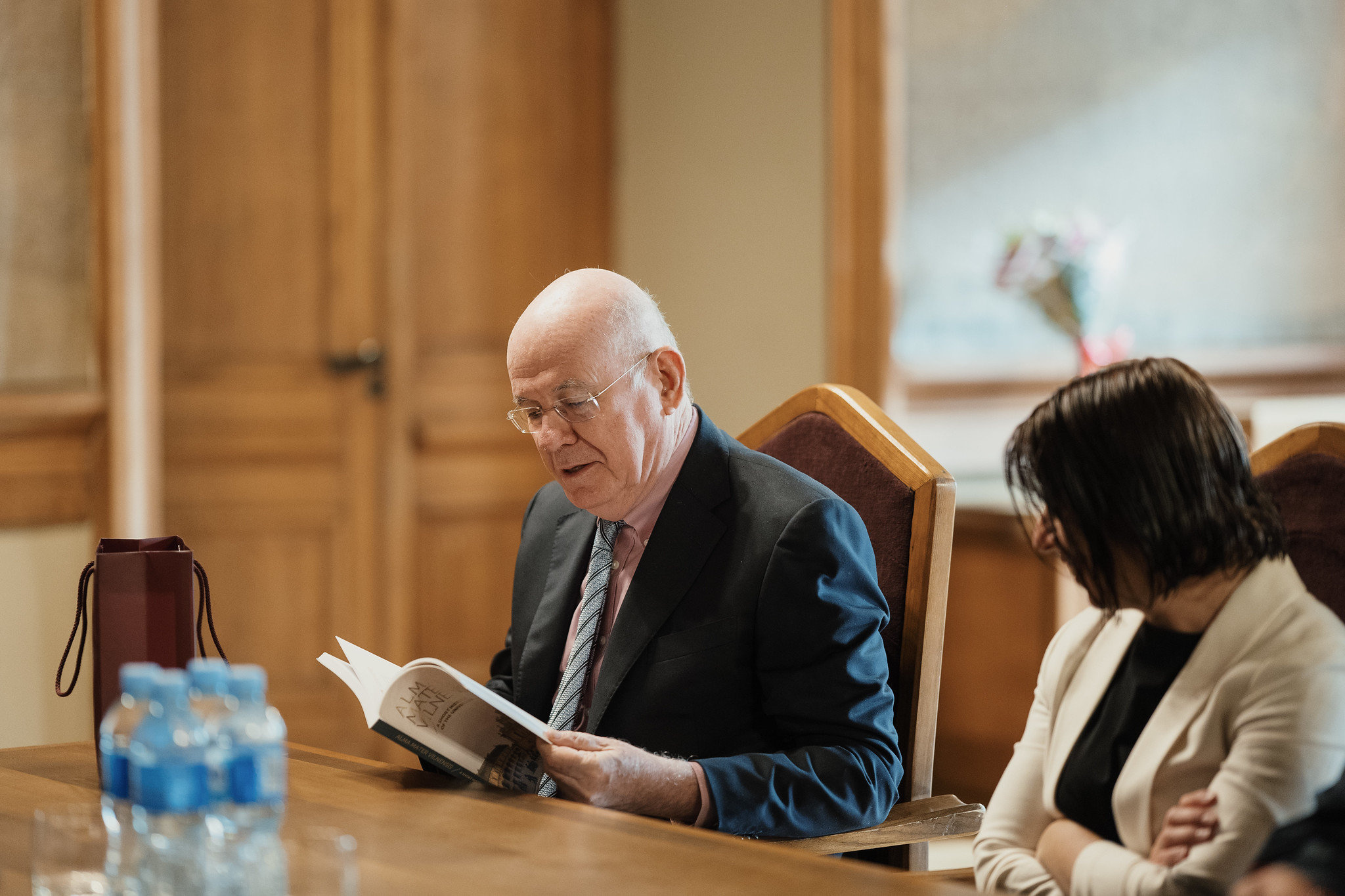CERN Council President Prof. E. Rabinovici: Membership of the Consortium Means Being at the Forefront of Technology

Prof. Eliezer Rabinovici, the 24th President of the Council of the European Organization for Nuclear Research (CERN), who visited Vilnius University (VU) and delivered a public lecture, stressed that Lithuania's membership in CERN means being at the forefront of technology and that by being an associate member of CERN, our country shapes its own role in the organisation.
Lithuanians at CERN study particle physics, improve technology, develop detectors
“Lithuanians, as a maritime nation, know how important it is to have your hand on the wheel as it gives the opportunity for small countries like Lithuania or Israel to be on the deck and have an impact on where this ship is going,” states Prof. E. Rabinovici.
CERN is represented in Lithuania by a consortium of three universities, including VU, Kaunas University of Technology and Lithuanian University of Health Sciences. The purpose of this consortium is to coordinate all activities related to CERN Lithuania. The main activity of the consortium is scientific research, but many other activities are also carried out.
"One of them is education, and we organise courses for both schoolchildren and PhD students. The consortium is also involved in commercial activities to bring CERN's discoveries to the public more quickly through various services and products. The consortium currently employs around 40 Lithuanian scientists who work on particle physics, developing detectors and materials for them, as well as improving existing equipment and research methods. Our doctors are also working on hadron therapy - investigating how high-energy particles could be used to treat cancer. This is a new and fast-developing field of medicine," said Prof. Ramūnas Aleksiejūnas, a physicist at VU and Executive Director of the CERN Consortium in Lithuania.
According to him, at present, the consortium plans to develop both ongoing essential activities, such as initiating scientific research and experiments and makes efforts to ensure that the acquired knowledge is better applied in education, popularizing particle physics and STEM activities. We organise and plan events for the public, and the Young Physicists School “Fotonas” operates at the Faculty of Physics, where we work directly with pupils. We also pay a lot of attention to working with students organising internships for them. Additionally, we provide teacher training, demonstrating how CERN research can be applied in the teaching process."
European scientists united for a common goal
“Let’s say one goes to the moon. It was part of the Cold War era fight between the USSR and the USA to show which system of society produces the highest possible benefits for humanity. Americans reached the moon. Here, there is a jewel in the crown – the research in Europe. Europeans work together, and that is CERN. Once you become part of the organisation, you put your hand on the wheel,” asserts Prof. E. Rabinovici.
According to him, it is also an opportunity to show the whole nation excellent aspects of humanity: “Here, at CERN, collectively, people from different cultures work for a common cause. If you put these people together, none of them would agree on which is the best basketball club, but they do succeed in putting together the most complicated machinery.“
The professor explains that being a member of CERN also means a technological opportunity. Once you are at the forefront of technology, you can look at it, learn it and develop it in the best possible way. Then, even more mundane, people who work at CERN are highly qualified to be used in whatever economic context.
From magnetic resonance to the World Wide Web
CERN is a massive organisation with scientists spread all over the world. So is Lithuania. Scientists involved in CERN's activities work in different parts of the country, and the consortium coordinates and connects these scientists. Scientists in the Consortium in Lithuania actively collaborate with CERN scientists worldwide.
“If you think of the research before CERN or at the very beginning that resulted in medical diagnostic tools that everybody wants now in a hospital: MRI, CT, etc. Physics and medicine have gone hand in hand, and advances made to particle detectors at CERN and elsewhere have continuously fuelled new developments in medical imaging,” explains Prof. E. Rabinovici.
He adds that the other discovery that today we cannot imagine our civilisation is a protocol of “www”: It started in the US Army research, but it was not built in a way to use it. There were many experimental groups working on this matter from different countries. The main question was how to communicate between the groups. British scientist Tim Berners-Lee, in 1989, while working at CERN, invented how to do it smoothly by discovering The World Wide Web.
Curiosity is the primary driver of research at CERN
However, Prof. E. Rabinovici highlighted that daily application is not the main motivation of the scientists working in CERN. In his view, the most important discoveries today are in fundamental areas: the weak interaction between w and z carriers, the discovery of the Higgs boson particle, etc.
“The slogan behind the CERN is that it exposes a better part of humanity. I think it is essential for people to know how to work together in order to produce knowledge and explicate it. The people working at CERN represent a certain part, which is a part of every one of us, at least when we were children, and that is curiosity. The researchers at CERN would like to know what are the basic laws of nature. It is a whole field of high-energy physics and the properties and the laws that govern it. Maybe one day they will become part of our everyday life," summarised Prof. E. Rabinovici.